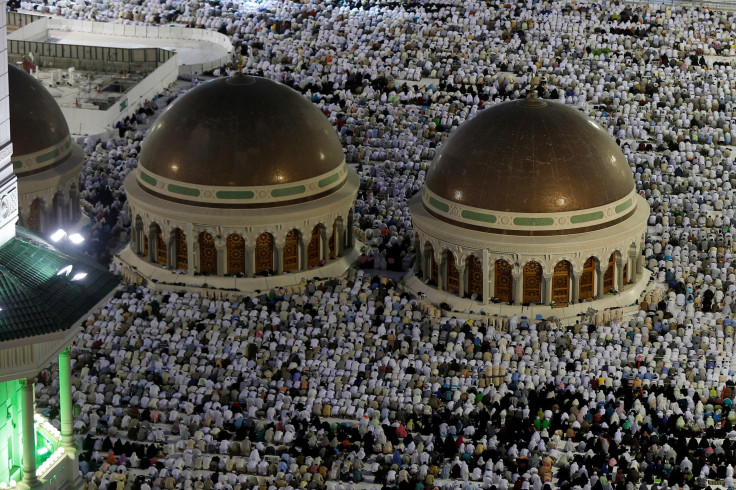Hajj 2019 Live Stream: How To Watch Muslim Pilgrimage To Mecca [VIDEO]

The five-day annual pilgrimage for Muslims called Hajj, which happens during the eighth and the 12th of the month of Dhul Hijjah — the last month of the Islamic calendar — begins this year on the evening of Aug. 9 and ends on the evening of Aug. 14.
According to the Center for International Communication (CIC), Saudi Arabia, more than 1.8 million pilgrims from all over the world have already arrived in the city of Mecca to perform the 2019 Hajj.
Eid al Adha, also known as the Feast of Sacrifice, represents the end of Hajj, and will most likely be marked in Saudi Arabia and other Muslim majority nations starting the evening of Aug. 12. However, dates may vary depending on the moon sighting. Eid al Adha is marked as a reminder of the time when Prophet Ibrahim was about to sacrifice his son at God’s command. On this day, Muslims with the financial means sacrifice an animal such as a sheep, goat or cow.
"In total, more than two million people, including Saudis and expatriate residents of the Kingdom, are expected in Saudi Arabia’s holy cities of Makkah and Madinah for the Hajj this year," according to a press release from CIC.
Below is the live stream from Mecca.
Hajj facts:
1. One of the Five Pillars of Islam, the Hajj is a sacred duty that Muslims must undertake at least once in their lifetime. The travel is exempted for people who cannot physically endure the journey or are not financially capable.
2. There isn’t any gender segregation at Hajj, unlike other Muslim rites.
3. Saudi Arabia began to expand the Grand Mosque in Mecca in 2011 due to the large footfall.
3. Hajj rituals include “tawaf,” or the circling of the large Kaaba, and "Sa’ee," where pilgrims walk between two hills – Marwah and Safa – seven times.
4. After Muslims reach Mina, located just outside of Mecca, a ritual called the "stoning of the devil" takes place.
5. People who have completed the pilgrimage can add the phrase al-Hajj or hajji (pilgrim) to their names.
6. Over 3 million pilgrims performed Hajj in 2017.
7. Thousands of people have died over the years during Hajj due to stampedes.
8. In 2015, a crane used for renovation work inside the Grand Mosque in Mecca fell over and tragically killed over 100 people.
9. The same year, a stampede killed more than 700 people and injured nearly 900 others during the "stoning the devil" ritual.
© Copyright IBTimes 2025. All rights reserved.



















